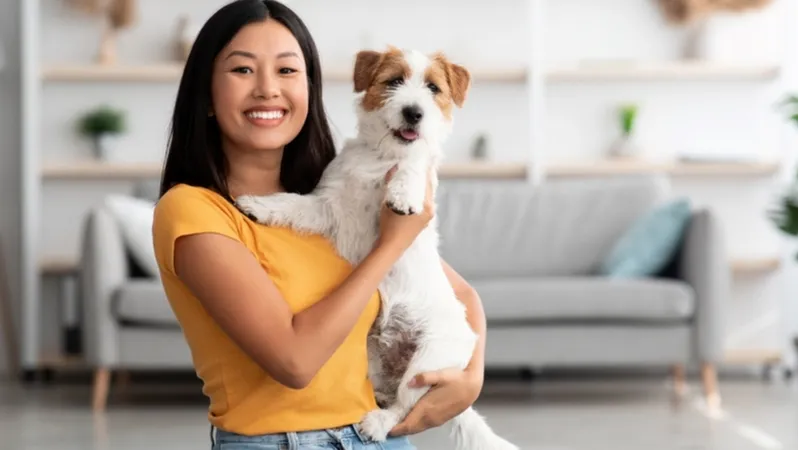Finding fleas on your adorable puppy can be distressing. As a loving dog owner, you naturally want to eliminate these pests quickly and safely, especially when dealing with puppies under 12 weeks old. Many conventional flea treatments are too harsh for young puppies. Fortunately, there are effective natural remedies you can use to protect your little one.
Understanding the Challenges
Puppies have delicate systems, making them more vulnerable to the side effects of chemical flea treatments. Their skin is thinner, and their organs are still developing, so they can’t process toxins as efficiently as adult dogs. Always consult your veterinarian before starting any flea treatment for puppies, even if it’s natural.
Safe and Gentle Natural Flea Treatments
Here are some safe and gentle flea medication for puppies under 12 weeks you can use to combat fleas on your young pup:
1. The Power of Bathing
Regular bathing is one of the safest and most effective ways to remove fleas from puppies. Use a mild, puppy-specific shampoo.
How to Bathe Your Puppy to Get Rid of Fleas:
- Wet your puppy thoroughly with warm water.
- Apply a small amount of shampoo and lather, being careful to avoid the eyes and ears.
- Focus on areas where fleas tend to congregate, such as the neck, belly, and base of the tail.
- Let the shampoo sit for a few minutes to suffocate the fleas.
- Rinse thoroughly until all shampoo is gone.
- Use a flea comb to remove any remaining dead or stunned fleas.
2. Flea Combing
Flea combs are designed with closely spaced teeth to trap and remove fleas and flea dirt (flea feces) from your puppy’s coat.
How to Flea Comb Effectively:
- Dip the comb in soapy water to kill any fleas you remove.
- Comb through your puppy’s fur, paying attention to areas with dense fur.
- Repeat daily until you no longer find fleas.
3. Apple Cider Vinegar (ACV)
Apple cider vinegar is a natural flea repellent. Its acidity makes your puppy’s skin less attractive to fleas.
How to Use ACV:
- Dilute ACV with water in a 1:1 ratio.
- Pour the mixture into a spray bottle.
- Lightly mist your puppy’s coat, avoiding the eyes.
- You can also add a teaspoon of ACV to your puppy’s water bowl.
4. Lemon Spray
The citric acid in lemons acts as a natural flea repellent.
How to Make Lemon Spray:
- Slice a lemon into thin pieces and place them in a pot.
- Cover with water and bring to a boil.
- Reduce heat and simmer for an hour.
- Let the mixture cool completely, then strain it into a spray bottle.
- Spray your puppy’s coat, avoiding the eyes.
5. Herbal Flea Collar
A homemade herbal flea collar can provide ongoing flea protection.
How to Make an Herbal Flea Collar:
- Place a few drops of flea-repelling essential oils, such as lavender or cedarwood, on a bandana. Make sure the oils are safe for puppies and used in very diluted form. Consulting with a vet beforehand is crucial.
- Tie the bandana loosely around your puppy’s neck.
- Refresh the oils every few days.
Caution: Some essential oils are toxic to dogs, especially puppies. Always research thoroughly and consult with your veterinarian before using any essential oils.
 Photo of a woman holding her dog
Photo of a woman holding her dog
Treating Your Home Environment
Fleas can live in your home for weeks, so it’s important to treat your puppy’s environment as well.
1. Vacuum Regularly
Vacuum carpets, rugs, upholstery, and crevices where fleas might be hiding. Dispose of the vacuum bag immediately.
2. Wash Bedding
Wash your puppy’s bedding in hot, soapy water. Dry on high heat to kill any remaining fleas or eggs.
3. Diatomaceous Earth (DE)
Food-grade diatomaceous earth is a natural powder made from fossilized algae. It’s safe for pets and humans but deadly to fleas.
How to Use DE:
- Sprinkle a thin layer of DE on carpets, rugs, and pet bedding.
- Leave it for a few days, then vacuum thoroughly.
Caution: Use food-grade DE only. Avoid inhaling the powder, as it can irritate the lungs.
4. Nematodes
Beneficial nematodes are microscopic worms that prey on flea larvae in your yard. You can purchase nematodes online or at garden centers.
How to Use Nematodes:
- Mix the nematodes with water according to the package directions.
- Spray the mixture on your lawn, focusing on shady areas.
When to See a Veterinarian
If your puppy has a severe flea infestation, or if you notice any signs of illness, such as lethargy, pale gums, or loss of appetite, consult your veterinarian immediately. They can recommend the safest and most effective treatment options for your puppy’s specific needs.
Key Takeaways
Protecting your puppy from fleas doesn’t have to involve harsh chemicals. By using these safe and natural methods, you can effectively control fleas and keep your little one healthy and happy. Remember that prevention is key. By regularly bathing, combing, and treating your home environment, you can minimize the risk of flea infestations and ensure your puppy stays pest-free.
